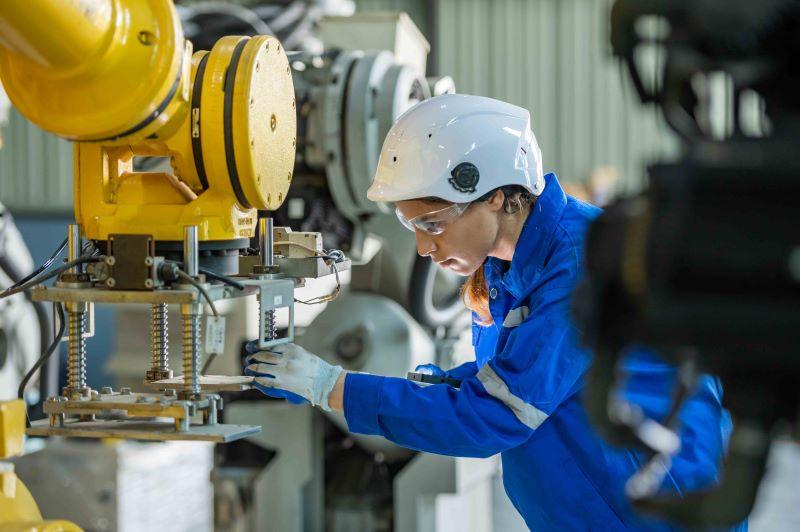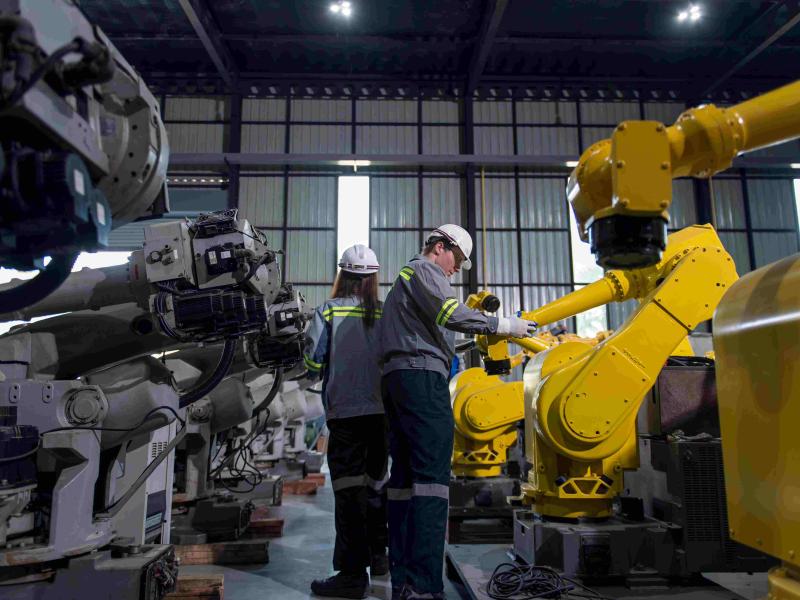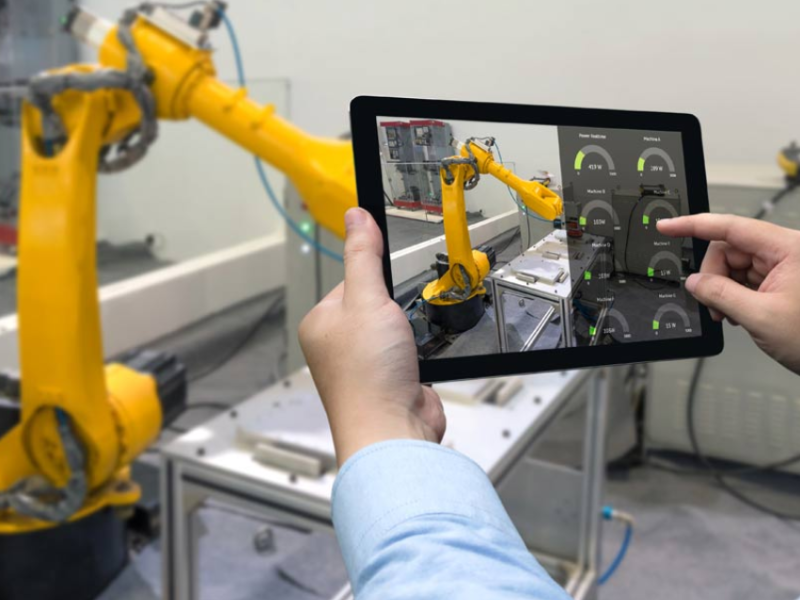The vision of robots and humans working side by side is now a reality driven by the rise of collaborative robots — or cobots. Flippy, the world’s first autonomous robotic kitchen assistant, is one example. Debuting in 2017, Flippy flips burgers, fries sides, and works tirelessly in fast-food kitchens. Over the past decade, many cobots have emerged, but Flippy remains unique because of its pioneering role and continued advancements in kitchen automation. But what makes these cobots so effective? One crucial factor is industrial bearings. Here, Chris Johnson, managing director at bearing specialist SMB Bearings, explores how precision bearings are enhancing the performance and reliability of cobots.
Cobots, unlike traditional industrial robots, are designed to work in close proximity to humans. Achieving this necessitates levels of precision, safety and reliability in cobots that are far higher than their industrial counterparts. Flippy, for instance, operates safely alongside human workers, showcasing the high standards required for such collaboration.
Bearings play a pivotal role in achieving these standards. Precision bearings, in particular, are essential for the smooth and accurate movement of cobots, allowing them to perform delicate tasks with the precision of a human hand.
The economic impact of cobots extends beyond individual businesses to the broader economy. By enabling companies to automate more processes and increase productivity, cobots can contribute to economic growth and competitiveness. For example, a report by McKinsey & Company estimates that automation technologies could help raise global productivity growth by 0.8 to 1.4 per cent annually.
The prospects for cobots
According to Fortune Business Insights, the market for cobots is expected to grow at a compound annual growth rate (CAGR) of 42.7 per cent from 2020 to 2028. This growth is driven by several factors: the increasing need for automation and the push for improved workplace safety. Cobots are not replacing human labour but are instead enhancing it by performing repetitive and dangerous tasks, while allowing humans to focus on more specialised tasks.
Manufacturers are particularly drawn to cobots for their flexibility and ease of integration. Unlike traditional robots, which often require extensive reprogramming and retooling, cobots can be quickly adapted to new tasks and environments. This makes them ideal for small and medium-sized enterprises (SMEs) that need to remain agile and responsive to market changes.
But why are industrial bearings so critical to the functionality of these machines? Bearings ensure these robots can move fluidly, reducing wear and tear and extending the life of the machinery.
In terms of efficiency, bearings reduce the friction between moving parts, which decreases energy consumption and increases the operational speed of cobots. This is particularly important in industries like electronics manufacturing, where speed and precision are essential. The ability to maintain high speeds without compromising on accuracy allows cobots to significantly boost manufacturers’ productivity.
Consider the automotive industry, where cobots are increasingly used for tasks like assembly, painting and welding. These applications demand high degrees of precision and reliability, as even minor errors can lead to significant defects.
Safety first
Safety is a primary concern when integrating cobots into a human workspace. The bearings used in cobots are designed to provide accuracy and repeatability, ensuring that the robot's movements remain controlled and predictable. This predictability is crucial for preventing accidents and ensuring a safe working environment.
Bearings also contribute to the fail-safe mechanisms in cobots. In the event of a malfunction, the robot can come to a controlled stop which helps avoid injury to human coworkers without the need for extensive safety barriers.
The food processing industry is another area where cobots are making significant inroads. Here, the precision and reliability of bearings are essential not only for the robots' performance but also for maintaining hygiene and safety standards. Bearings used in food processing cobots are often made from stainless steel or other materials that resist corrosion and can withstand frequent cleaning and sterilisation.
Advanced materials and coatings
Advancements in bearing technology are also driven by the development of new materials and coatings. For instance, ceramic bearings are gaining popularity due to their superior performance characteristics, including higher resistance to wear and corrosion compared to traditional steel bearings. These properties, and the ability to run unlubricated, make ceramic bearings a possibility for use in cobots, especially in environments that involve high temperatures, exposure to chemicals or where weight reduction is required.
What’s more, specialised coatings such as Teflon and graphite can be applied to bearings to further reduce friction and improve their durability. These advancements not only improve the performance and longevity of bearings but also contribute to the overall efficiency and reliability of cobots. By reducing the need for frequent maintenance and replacements, these advanced bearings help manufacturers achieve higher levels of productivity and cost-effectiveness.
SMB Bearings’ precision bearings for robotics are designed to meet the rigorous demands of modern automation, offering reliability and performance. By working closely with engineers and manufacturers it can provide tailored bearing solutions that enhance the safety and efficiency of cobots — whether that's in automotive assembly lines, electronics manufacturing or food processing.
As cobots continue to evolve, the future of cobots is bright. With precision bearings at their core, cobots like Flippy are paving the way for a new era of collaboration between humans and robots. These bearings ensure smooth, reliable operation, enabling cobots to perform tasks with high precision and safety. The right components, like advanced bearings, are key to unlocking limitless possibilities for cobots and the industries they serve.
To learn more about SMB Bearings’ precision bearings for robotics, visit its website.






